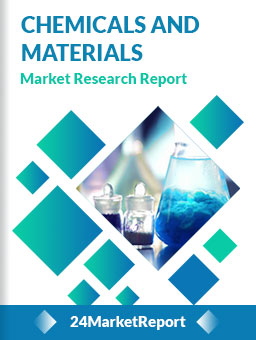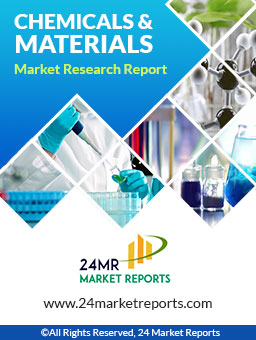
COMPANIES COVERED
DowDownload FREE Report Sample
Download Free sampleHigh Purity Ethyl 3‑Ethoxypropionate (EEP‑HP) is a slow‑evaporating, high‑boiling ether‑ester solvent distinguished by its linear C7 backbone and propionyl functional group. These structural attributes endow EEP‑HP with a unique balance of solvency power, surface tension, and evaporation rate that is particularly valuable for advanced coating systems, precision inks, and electronic cleaning applications. Unlike conventional glycol ethers, EEP‑HP provides high flash‑point safety, low odor, and excellent polymer compatibility, making it a preferred choice in high‑solid and low‑VOC formulations where performance and regulatory compliance intersect.
At ≥ 99 % purity, the product offers extremely low moisture and impurity levels—critical for semiconductor, display, and pharmaceutical processes where trace contaminants can compromise yields or product quality.
Market Size
Global High Purity Ethyl 3‑Ethoxypropionate Market was valued at USD 536 million in 2024 and is forecast to reach USD 817.37 million by 2032, reflecting a compound annual growth rate (CAGR) of 4.80 %.
Historical Context (2018 – 2024)
2018‑2020 – The market experienced steady growth (≈ 3.9 % CAGR) as EEP‑HP replaced higher‑VOC glycol ethers in industrial wood coatings and automotive refinishes.
To know more about market statistics, Download a FREE Sample copy
2020‑2021 – COVID‑19 disruptions constrained supply, but demand for high‑grade solvents in electronics and medical devices mitigated the downturn.
2022‑2024 – Recovery accelerated in Asia‑Pacific, driven by booming EV production and architectural coatings aligned with stricter environmental legislation (e.g., China’s GB /T 38597‑2020 volatile solvent regulation).
Near‑Term Outlook (2025 – 2027)
Capacity expansions by Dow (Texas, USA) and Nadi New Material (Zhejiang, China) are scheduled to add ≈ 30 kt p.a., stabilizing feedstock costs.
Shift toward waterborne systems in EMEA increases the solvent’s role as a coalescent additive, pushing incremental demand of ~12 kt by 2027.
Long‑Term Projection (2028 – 2032)
Emerging high‑resolution inkjet printing for flexible electronics could elevate EEP‑HP consumption by 6 %+ CAGR in the specialty inks segment.
Wide adoption in biocompatible film coatings for medical devices is anticipated once ongoing toxicological studies confirm favorable profiles.
North America contributed USD 151.40 million in 2024 and is projected to grow at 4.11 % CAGR through 2032, underpinned by automotive OEM re‑tooling and infrastructure stimulus packages (e.g., the U.S. CHIPS Act boosting semiconductor fabs that rely on EEP‑HP for photoresist residue removal).
Market Dynamics (Drivers, Restraints, Opportunities, and Challenges)
Drivers
Stringent VOC & HAP Regulations
Agencies such as the U.S. EPA (40 CFR Part 63 Subpart HHHHHH) and China’s Blue‑Sky Initiative cap allowable emissions, motivating formulators to shift toward high‑performance, slow‑evaporation solvents with lower photochemical reactivity.
Growth of High‑Solid & UV‑Curable Coatings
EEP‑HP’s strong solvency for acrylates, isocyanates, and nitrocellulose resins makes it indispensable in next‑gen wood finishes and 2K automotive clearcoats.
Electronics Manufacturing Boom
- Rising production of displays, PCBs, and advanced packaging demands ultra‑clean solvents that leave minimal ionic residues—EEP‑HP meets these thresholds (< 25 ppm water, < 5 ppm acids).
Industrial Cleaning Efficiency
Superior substrate wetting and elevated flash point (~93 °C) allow safer, more effective alternatives to traditional ketones in high‑precision degreasing.
Restraints
Feedstock Cost Volatility – Propionic acid price swings (+/‑ 18 % YoY in 2023) directly impact EEP‑HP margins.
Specialized Handling Requirements – While low in hazard, EEP‑HP necessitates dedicated stainless‑steel storage to avoid hydrolysis, limiting adoption by small formulators.
Opportunities
Bio‑Based Pathways – Research into fermentative propionate and bio‑ethanol feedstocks could deliver partially bio‑based EEP‑HP (< 60 % bio‑carbon) by 2028, satisfying sustainability metrics of major coatings customers.
Asia‑Pacific Semiconductor Surge – Taiwan’s 2 nm fab expansions and India’s new display panel clusters together represent > USD 150 billion in capex, translating to robust solvent demand.
Challenges
Regulatory Uncertainty Around EHS Profiles – Pending re‑evaluation under EU REACH may impose additional risk management measures.
Competitive Substitutes – Novel di‑ketone diluents and propylene carbonate blends could erode EEP‑HP share if price differentials widen beyond 15 %.
Regional Analysis
North America
Europe
Asia‑Pacific
South America
Middle East & Africa
Competitor Analysis
The competitive landscape is moderately consolidated, led by Dow and Eastman (combined ~38 % global share). Dow leverages integrated propionic acid capacity in Freeport, Texas, ensuring supply chain resilience. Eastman differentiates via proprietary low‑odor purification technology (EAST‑ATEC™).
Emerging Chinese manufacturers such as Nadi New Material and Zhejiang Realsun have increased scale post‑2022, benefiting from government incentives for “green solvent” production. Santa Cruz Biotechnology focuses on ultra‑high‑purity grades for life‑science R&D, while Taiwan Maxwave targets semiconductor cleaning formulations with sub‑ppm metal specs.
Competitive positioning hinges on purity tiers, distribution networks, and backward integration into feedstocks.
Global High Purity Ethyl 3‑ethoxypropionate Market: Market Segmentation Analysis
High Purity Ethyl 3-ethoxypropionate Market provides a deep insight into the global High Purity Ethyl 3‑ethoxypropionate market, covering all its essential aspects. This ranges from a macro overview of the market to micro details of the market size, competitive landscape, development trend, niche market, key market drivers and challenges, SWOT analysis, value chain analysis, etc.
The analysis helps the reader to shape the competition within the industries and strategies for the competitive environment to enhance the potential profit. Furthermore, it provides a simple framework for evaluating and assessing the position of the business organization. The report structure also focuses on the competitive landscape of the Global High Purity Ethyl 3‑ethoxypropionate Market. High Purity Ethyl 3-ethoxypropionate Market introduces in detail the market share, market performance, product situation, operation situation, etc., of the main players, which helps the readers in the industry to identify the main competitors and deeply understand the competition pattern of the market.
In a word, High Purity Ethyl 3-ethoxypropionate Market is a must‑read for industry players, investors, researchers, consultants, business strategists, and all those who have any kind of stake or are planning to foray into the High Purity Ethyl 3‑ethoxypropionate market in any manner.
Market Segmentation (by Application)
Market Segmentation (by Type)
Key Company
Geographic Segmentation
FAQ Section
What is the current market size of the High Purity Ethyl 3‑Ethoxypropionate market?
Which are the key companies operating in the High Purity Ethyl 3‑Ethoxypropionate market?
What are the key growth drivers in the High Purity Ethyl 3‑Ethoxypropionate market?
Which regions dominate the High Purity Ethyl 3‑Ethoxypropionate market?
What are the emerging trends in the High Purity Ethyl 3‑Ethoxypropionate market?
Key Benefits of This Market Research:
Industry drivers, restraints, and opportunities covered in the study
Neutral perspective on the market performance
Recent industry trends and developments
Competitive landscape & strategies of key players
Potential & niche segments and regions exhibiting promising growth covered
Historical, current, and projected market size, in terms of value
In-depth analysis of the High Purity Ethyl 3-ethoxypropionate Market
Overview of the regional outlook of the High Purity Ethyl 3-ethoxypropionate Market:
Key Reasons to Buy this Report:
Access to date statistics compiled by our researchers. These provide you with historical and forecast data, which is analyzed to tell you why your market is set to change
This enables you to anticipate market changes to remain ahead of your competitors
You will be able to copy data from the Excel spreadsheet straight into your marketing plans, business presentations, or other strategic documents
The concise analysis, clear graph, and table format will enable you to pinpoint the information you require quickly
Provision of market value data for each segment and sub-segment
Indicates the region and segment that is expected to witness the fastest growth as well as to dominate the market
Analysis by geography highlighting the consumption of the product/service in the region as well as indicating the factors that are affecting the market within each region
Competitive landscape which incorporates the market ranking of the major players, along with new service/product launches, partnerships, business expansions, and acquisitions in the past five years of companies profiled
Extensive company profiles comprising of company overview, company insights, product benchmarking, and SWOT analysis for the major market players
The current as well as the future market outlook of the industry concerning recent developments which involve growth opportunities and drivers as well as challenges and restraints of both emerging as well as developed regions
Includes in-depth analysis of the market from various perspectives through Porters five forces analysis
Provides insight into the market through Value Chain
Market dynamics scenario, along with growth opportunities of the market in the years to come
6-month post-sales analyst support
Customization of the Report
In case of any queries or customization requirements, please connect with our sales team, who will ensure that your requirements are met.
Chapter Outline
Chapter 1 mainly introduces the statistical scope of the report, market division standards, and market research methods.
Chapter 2 is an executive summary of different market segments (by region, product type, application, etc), including the market size of each market segment, future development potential, and so on. It offers a high-level view of the current state of the High Purity Ethyl 3-ethoxypropionate Market and its likely evolution in the short to mid-term, and long term.
Chapter 3 makes a detailed analysis of the market's competitive landscape of the market and provides the market share, capacity, output, price, latest development plan, merger, and acquisition information of the main manufacturers in the market.
Chapter 4 is the analysis of the whole market industrial chain, including the upstream and downstream of the industry, as well as Porter's five forces analysis.
Chapter 5 introduces the latest developments of the market, the driving factors and restrictive factors of the market, the challenges and risks faced by manufacturers in the industry, and the analysis of relevant policies in the industry.
Chapter 6 provides the analysis of various market segments according to product types, covering the market size and development potential of each market segment, to help readers find the blue ocean market in different market segments.
Chapter 7 provides the analysis of various market segments according to application, covering the market size and development potential of each market segment, to help readers find the blue ocean market in different downstream markets.
Chapter 8 provides a quantitative analysis of the market size and development potential of each region from the consumer side and its main countries and introduces the market development, future development prospects, market space, and capacity of each country in the world.
Chapter 9 shares the main producing countries of High Purity Ethyl 3-ethoxypropionate, their output value, profit level, regional supply, production capacity layout, etc. from the supply side.
Chapter 10 introduces the basic situation of the main companies in the market in detail, including product sales revenue, sales volume, price, gross profit margin, market share, product introduction, recent development, etc.
Chapter 11 provides a quantitative analysis of the market size and development potential of each region during the forecast period.
Chapter 12 provides a quantitative analysis of the market size and development potential of each market segment during the forecast period.
Chapter 13 is the main points and conclusions of the report.

Speak to our Custom Research Team and get the Custom Research in a budget
Custom ResearchFrequently Asked Questions ?
A license granted to one user. Rules or conditions might be applied for e.g. the use of electric files (PDFs) or printings, depending on product.
A license granted to multiple users.
A license granted to a single business site/establishment.
A license granted to all employees within organisation access to the product.
Upto Working 24 to 48 hrs
Upto 72 hrs max - Weekends and Public Holidays
Online Payments with PayPal and CCavenue
Wire Transfer/Bank Transfer
Hard Copy




 Industry Market Size
Industry Market Size SWOT Analysis
SWOT Analysis Industry Major Players
Industry Major Players Revenue Forecasts
Revenue Forecasts Historical and Forecast Growth
Historical and Forecast Growth Profitability Analysis
Profitability Analysis
























